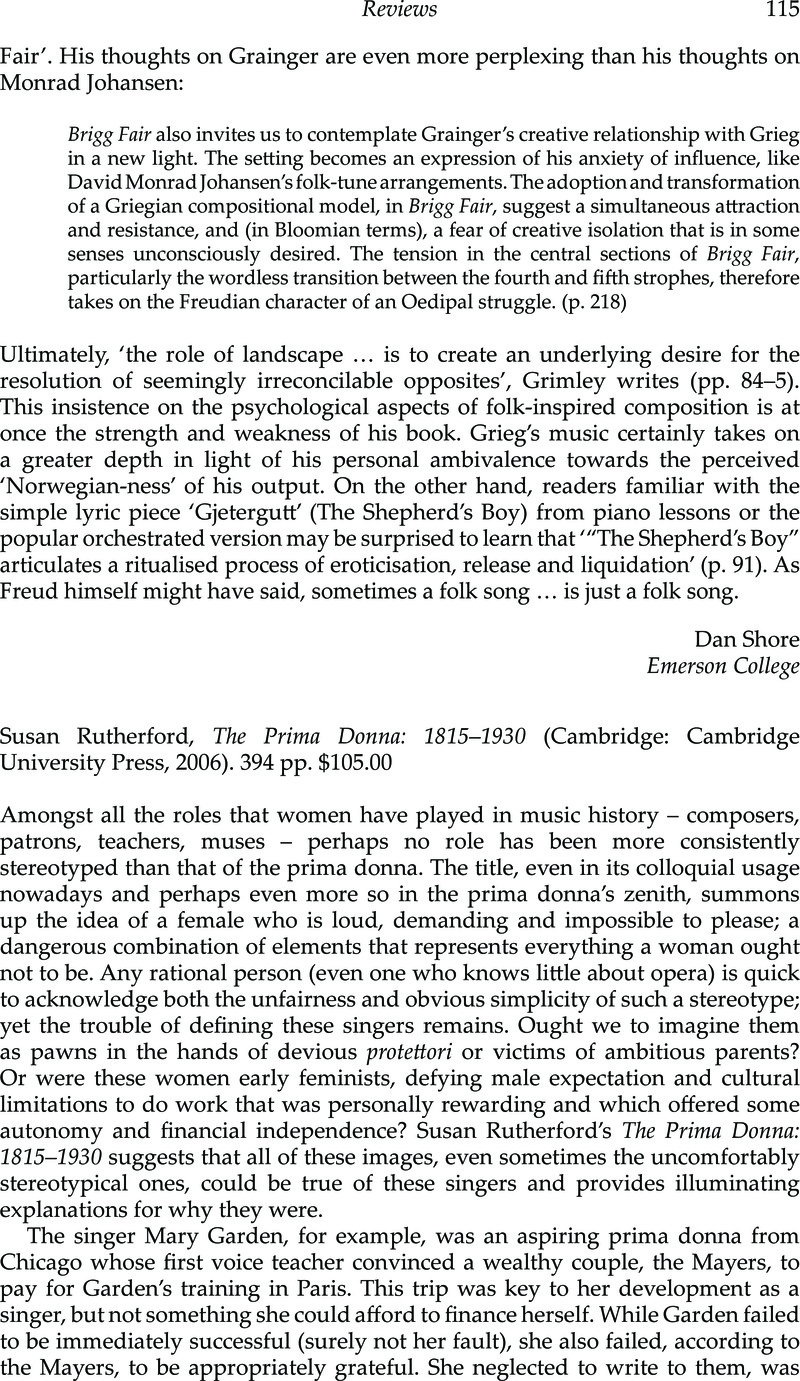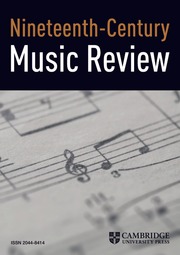No CrossRef data available.
Article contents
Susan Rutherford, The Prima Donna: 1815–1930 (Cambridge: Cambridge University Press, 2006). 394 pp. $105.00
Published online by Cambridge University Press: 13 April 2011
Abstract

- Type
- Book Reviews
- Information
- Copyright
- Copyright © Cambridge University Press 2008
References
1 ‘The contract stated that she would be paid £2,300 … she would have the right to choose which roles she would sing; she was not obliged to sing more than six times a month, or to sing in any other concerts at the theatre apart from Ebers’ benefit evening; she would sing no operas beyond those named … with the exception of a new opera expressly composed for the King's Theatre – on condition she was entirely happy with her role; she would be afforded a benefit evening, presenting a new opera chosen by herself, the costs of which would be borne entirely by the management; she would be permitted leave of eight days; she would be able to sing in any private or public concerts … a box would be at her disposal during the length of her engagement, plus twelve tickets for the pit and welve for the gallery on every night she played; she would choose the costumes necessary for her roles, all paid for by the management; finally, if the management failed to adhere to any of the contractual clauses, she would have the right to suspend all performances’ (pp. 167–8). A prima donna assoluta indeed!
2 In Chapter 2 (pp. 83–9), Rutherford gives a very interesting discussion of the involvement of various singers with the suffragette movement. Youmans, Charles, Richard Strauss's Orchestral Music and German Intellectual Tradition: The Philosophical Roots of Musical Modernism (Bloomington: Indiana University Press, 2005). 294 pp. $39.95Google Scholar


